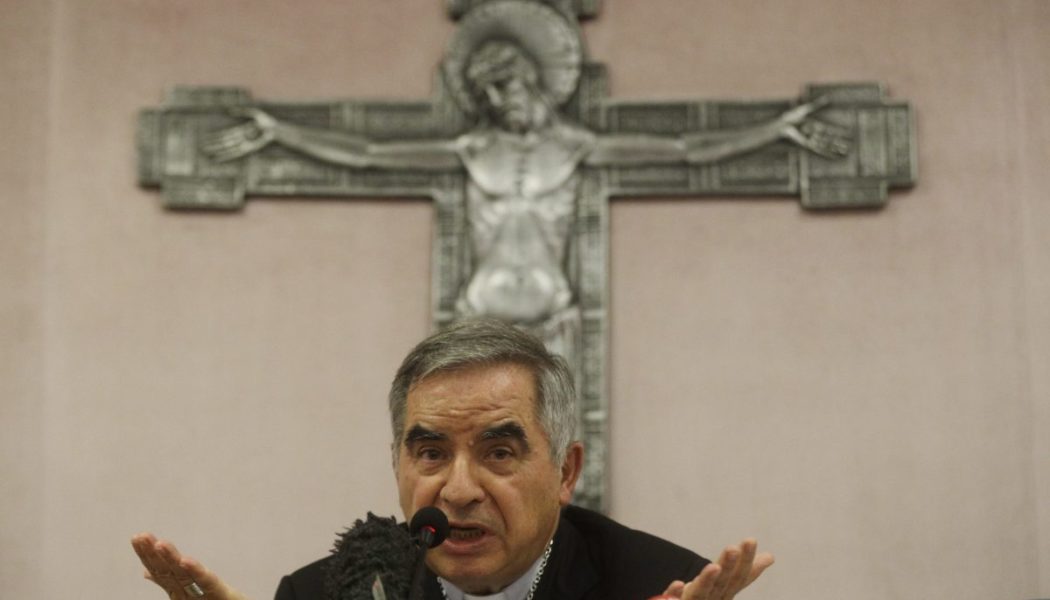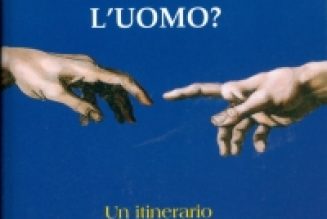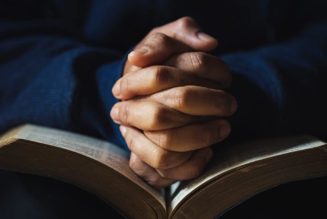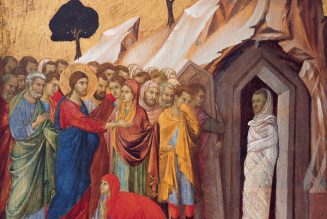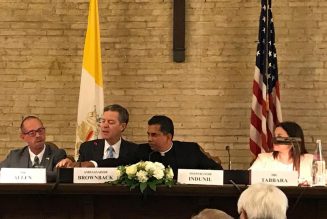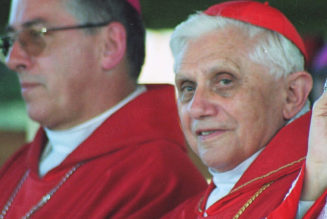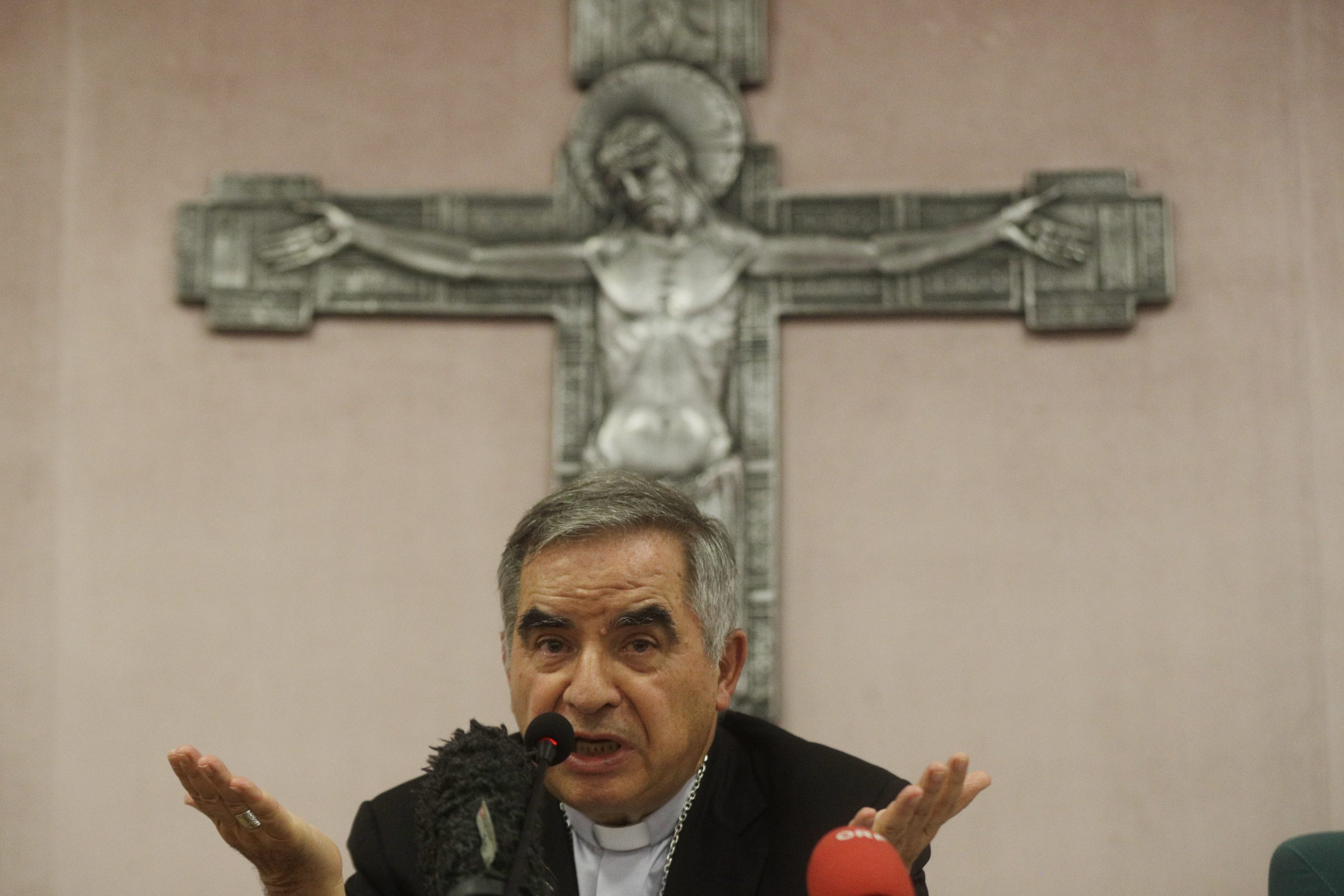
|
Listen to this story: |
ROME – It’s been a rough week for the case against Italian Cardinal Angelo Becciu and nine other defendants in the Vatican’s “Trial of the Century,” with challenges facing the prosecution both inside the courtroom and also more than 230 miles away.
On the inside, the court heard (and rejected) another due process complaint from defense attorneys this week, one which actually compared the current trial to the era of the Inquisition. It also heard testimony from one of the defendants that did not appear to bolster the prosecution case.
On the outside, the priests of a diocese in Becciu’s native Sardinia published an open letter referring to police raids last week in connection to one aspect of the charges as “absurd,” “unjustified,” and “specious.”
The case, however, continues to grind along, with Becciu himself set to testify next week on May 5.
Before this week’s action could get underway, the three-judge panel hearing the case was forced to deal with an objection lodged by Luigi Panella, the lawyer representing veteran Vatican financier Enrico Crasso, another of the defendants in the case who are accused of conspiracy to defraud the Vatican in a failed $400 million property deal in London.
Panella complained that a Lenovo computer belonging to Crasso and seized as part of the initial investigation two years ago still has not been returned. When he asked for it back in order to help prepare Crasso’s defense, Panella said, he was told that it couldn’t be returned a) because it still hasn’t been examined because it’s password-protected, and b) because it’s relevant to another part of the investigation. Instead, prosecutors offered to provide a “forensic copy of the data contained” in the computer’s memory.
How, Panella wondered aloud, could prosecutors know the computer is relevant to some other part of the case if they haven’t even been able to boot it up? Moreover, he said, no one ever asked Crasso for his password during more than 30 hours of interrogation.
Based on those anomalies, Panella offered a provocative comparison to the era of the Inquisition in the Middle Ages, when one famed inquisitor, Dominican Father Nicolas Eymerich, complained that the main obstacle to the rapid conclusion of a case was “the presence of a defense.”
The presiding judge, Giuseppe Pignatone, rejected Panella’s complaint on the basis that it essentially repeated objections about due process, which had already been heard by the court and set aside.
With that out of the way, the court heard testimony on Wednesday from Italian layman Tomasso di Ruzza, the former director of the Vatican’s Financial Information Authority (AIF), essentially its financial watchdog unit, created under Pope Benedict XVI. Di Ruzza, along with AIF’s former president, Swiss lawyer René Brülhart, has been charged with negligent supervision for failing to object to the London deal.
According to Di Ruzza, however, AIF’s only real role in the transaction was to provide an opinion as to whether the Vatican bank could issue a loan to the Secretariat of State to try to buy its way out of an arrangement with Italian businessman Gianluigi Torzi, who’s also charged in the present case. Di Ruzza insisted that AIF performed that function within the limits of its responsibilities and according to the law.
Moreover, Di Ruzza said, it was made clear to AIF in multiple ways that neither the pope nor the higher-ups in the Secretariat of State wanted to file a complaint involving Torzi, but instead wanted to try to negotiate an exit strategy.
“Who was I supposed to denounce? The sostituto?” Di Ruzza asked, referring to Venezuelan Archbishop Edgar Peña Parra, the “substitute,” or number two official, in the Secretariat of State, who was the one issuing instructions regarding the London deal.
The clear suggestion in Di Ruzza’s testimony was that if anyone is culpable in the London deal, it’s not mid-level figures whose involvement was marginal, but senior officials in the system who called the shots and approved all the transactions.
Finally, the prosecution of Becciu also involves charges that he illicitly directed funds from the Secretariat of State to various parties, including a diocesan charity in Ozieri, on the island of Sardinia, controlled by his brother.
Earlier this month, Italian financial police, following the lead of Vatican prosecutors, raided not only the headquarters of a charitable organization in Ozieri but also all the parishes in the diocese, seeking information about how money directed by Becciu to the charity was actually spent.
In response, priests of the diocese published a scathing open letter.
“For the last year and a half, we’ve watched, in religious silence, the absurd (and, to this day, unexplained in both merit and method) judicial and media circus that’s involved an illustrious son of our diocese, His Eminence Cardinal Angelo Becciu, our dear ‘Don Angelino,’ and, by consequence, the diocese itself in the person of the bishop and the diocesan Caritas,” the priests wrote.
“Now, however, we cannot remain silent, united in our great indignation and deep sorrow for what, in fact, appears to be an unjustified and specious obstinance regarding our diocese … our complete solidarity [goes] to Bishop Corrado [Melis], and to the entire beloved diocese of Ozieri, marked right now by so much suffering,” they said.
From the beginning, there actually have been two trials vis-à-vis the charges against Becciu and the other defendants.
One is being waged in the Vatican courtroom presided over by Pignatone, and there the outcome remains uncertain. The other trial is unfolding in the court of public opinion, where the Vatican wants to convince the world of its new commitment to transparency, accountability, and internationally accepted “best practices,” especially concerning financial crime. The whole point of indicting a cardinal was to show that no one, anymore, is above the law.
In that second trial, too, the battle isn’t yet over. Yet as the prosecution continues to amass embarrassments and question marks, it’s not clear the smart money right now would be on the Vatican getting an entirely clean bill of health when the dust settles.
Follow John Allen on Twitter: @JohnLAllenJr
Join Our Telegram Group : Salvation & Prosperity
